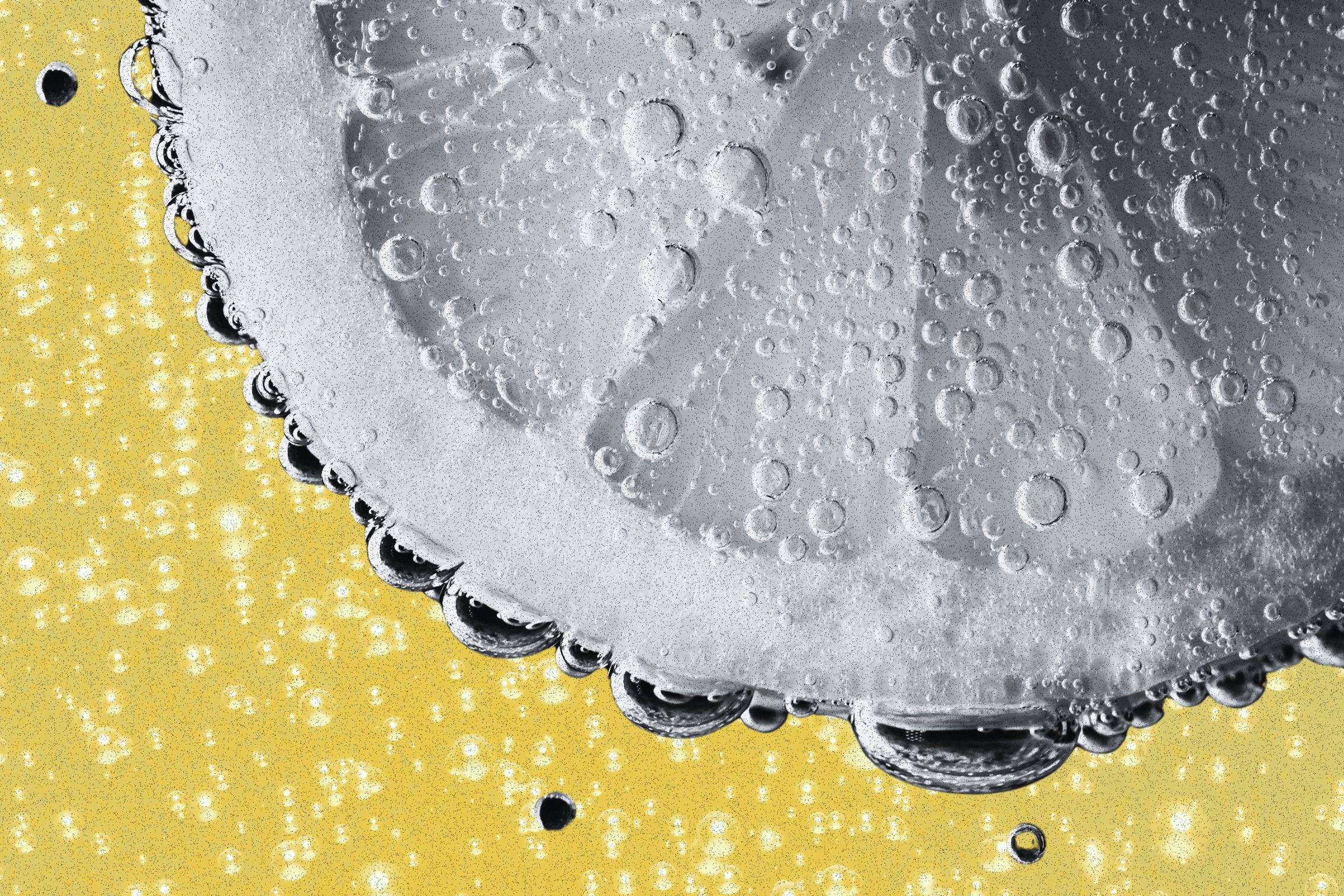On the hierarchy of healthy beverages, seltzer bubbles up to the top.
Research has found that sparkling water (another name for seltzer) is just as hydrating as still water, and the human body absorbs it the same way. After all, seltzer is little more than plain water infused with carbon dioxide gas to make it fizzy.
“Seltzer or carbonated water is generally beneficial because we are all underhydrated, and most people do not hydrate sufficiently during the day,” says Dr. David Poppers, a professor of medicine and director of GI quality and strategy initiatives at NYU Langone Health. “It’s hydrating, and it doesn’t have the calories that are associated with other drinks.”
[time-brightcove not-tgx=”true”]
So for those who prefer seltzer over still, it’s fine for most people to drink it regularly. But there are some caveats. Here’s what you need to know before you start subsisting off of seltzer.
It may irritate your bladder
For most people, it won’t have this effect. But if you have interstitial cystitis (a chronic condition that causes pain and pressure in the bladder area), or an overactive or sensitive bladder, “the carbonation in seltzer can potentially irritate the bladder lining and exacerbate symptoms like urgency or discomfort,” says Dr. Dana Cohen, a physician specializing in integrative medicine in New York City and co-author of the book Quench: Beat Fatigue, Drop Weight, and Heal Your Body Through the New Science of Optimum Hydration.
The best way to tell if this is happening to you is to pay attention to your urinary symptoms after drinking seltzer.
It could improve your digestion
Drinking seltzer “is beneficial for helping with regular bowel movements and constipation,” Poppers says. “Like regular water, carbonated water is important for gut health and motility.”
Read More: What to Eat When You’re Sick
Some research has found that carbonated water can help people who have chronic indigestion, and a study from Japan found that drinking carbonated water even increases short-term feelings of fullness more than drinking regular water does.
Seltzer might give you gas or heartburn
“For people who are prone to acid reflux, bloating, or gas, the bubbles [in seltzer] can increase intra-abdominal pressure and trigger or worsen symptoms,” Cohen says. Those excess bubbles have to come out somewhere, so don’t be surprised if you experience burping or farting after drinking seltzer.
When it comes to heartburn, “the carbonation can relax the lower esophageal sphincter, making it easier for stomach contents and acid to travel upward and cause heartburn,” Cohen explains. This is especially true if you drink it rapidly. Her advice is to pair seltzer with food, rather than drinking it on an empty stomach, to help reduce its impact on reflux.
It could take a toll on your teeth
For anyone who consumes seltzer frequently throughout the day, be aware that it may damage your teeth because it’s slightly acidic—though not nearly as acidic as soda. “Sipping on it for hours prolongs the low pH [a marker of acid] in your mouth, causing enamel to break down and demineralize,” explains Lilya Horowitz, a general and cosmetic dentist and owner of Domino Dental in Brooklyn. This can make the teeth susceptible to cavities and small fractures, she adds.
She recommends sipping seltzer for 15 to 20 minutes at a time, rather than all day long, and to alternate seltzer with less acidic drinks like herbal tea, coconut water, or plain water.
Read More: What’s the Most Refreshing Drink That’s Not Water?
Drinking seltzer through a straw can also help protect your teeth from the acid, though drinking any liquid through a straw may add to gassiness (because you’re likely to swallow air) and wrinkles around the mouth, says Dawn Jackson Blatner, a registered dietitian nutritionist in Chicago. It’s a good idea to “rinse your mouth with plain water after sipping seltzer so it’s not sitting on your teeth,” she says.
Keep in mind that in many parts of the U.S., tap water contains added fluoride to protect your teeth—so if you’re relying exclusively on canned or bottled carbonated water, you won’t get the benefits. But if you use tap water to make fizzy water at home with a carbonation machine, you will.
The good news for your bones
A concern to cross off the worry list: It was once believed that consumption of any bubbly beverage, including seltzer, is bad for bone health—but that’s not true of seltzer. It is, however, true of colas, which contain phosphoric acid that interferes with calcium absorption.
The bottom line on bubbly water
“The key is moderation—drinking one to three cans of plain seltzer per day will be safe for most people, especially if it helps them meet their hydration goals,” says registered dietitian Eric Williamson, director of nutrition at Canyon Ranch Tucson. “Just be mindful of added ingredients, your own digestive comfort, and how it fits into your overall dietary pattern.”
It’s best to steer clear of fizzy waters that contain added sugars or artificial sweeteners, Cohen says. These ingredients can irritate the digestive tract, the bladder, or the teeth for people who are sensitive to them.
If a carbonated water contains “natural flavors” that are derived from fruits (like oranges or berries), vegetables (like cucumber), herbs (like mint), or spices (like ginger), that’s unlikely to cause problems. The only way to know what’s in the can or bottle is to read the label.

